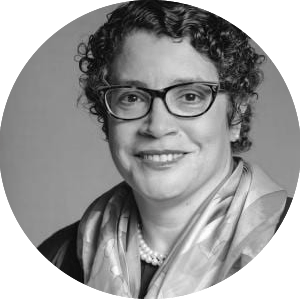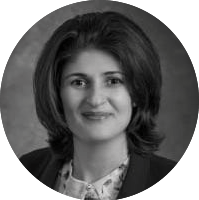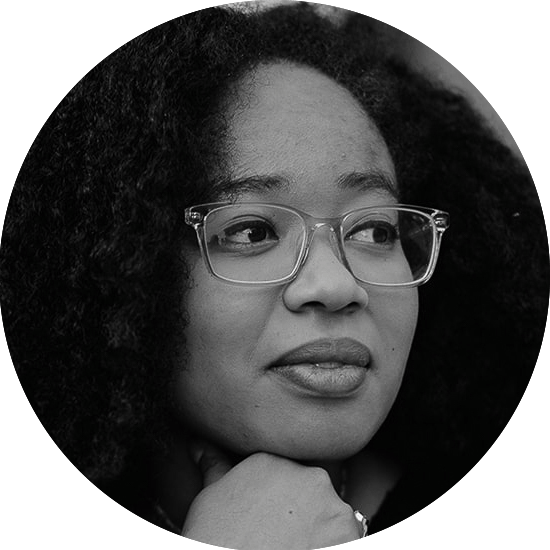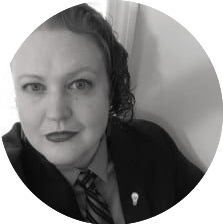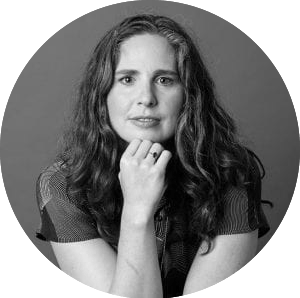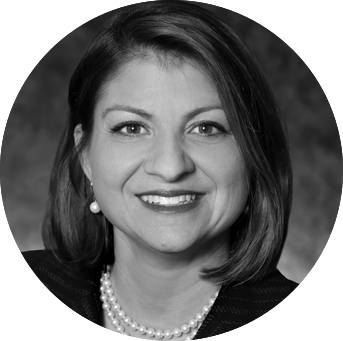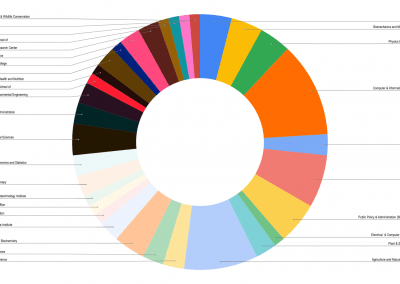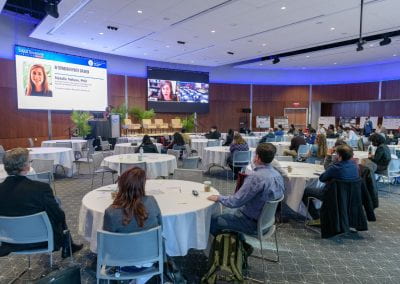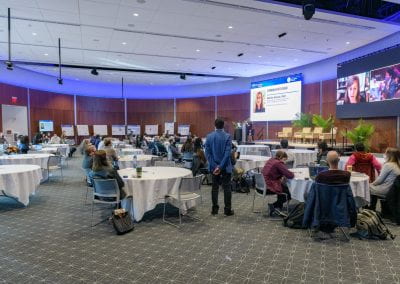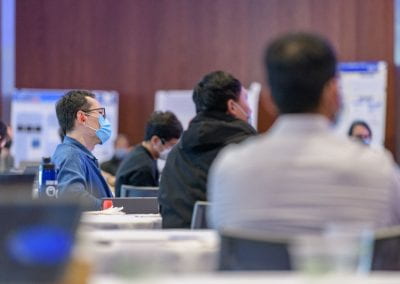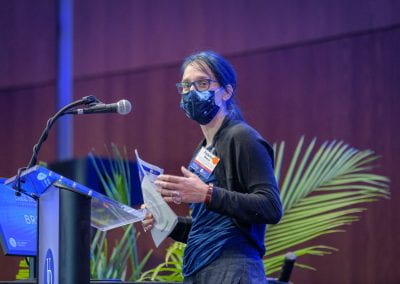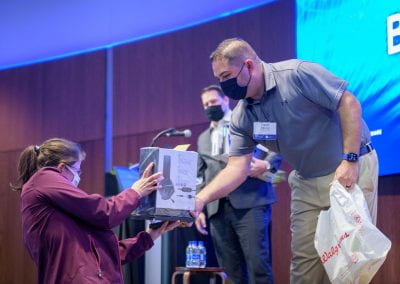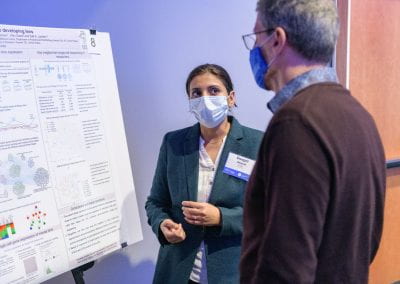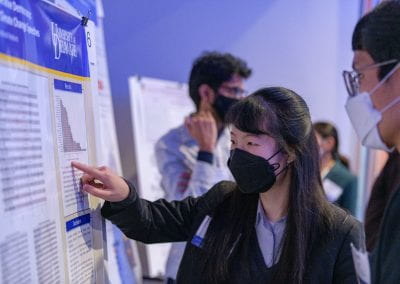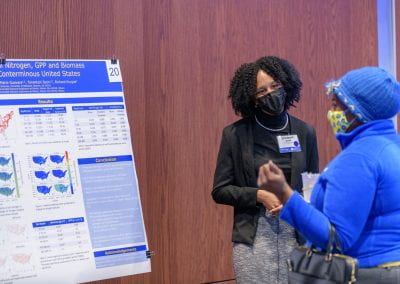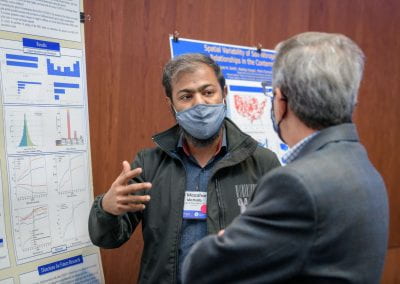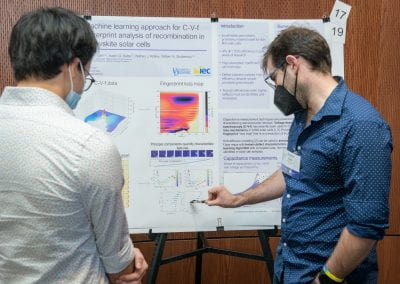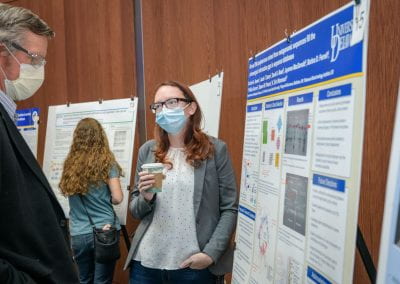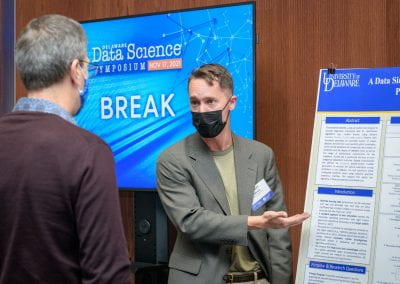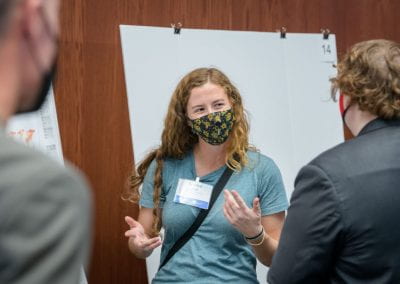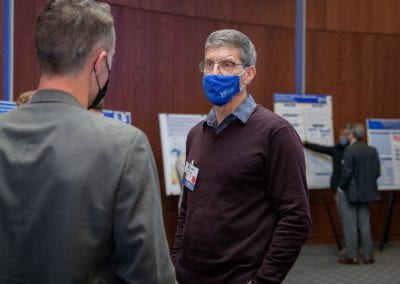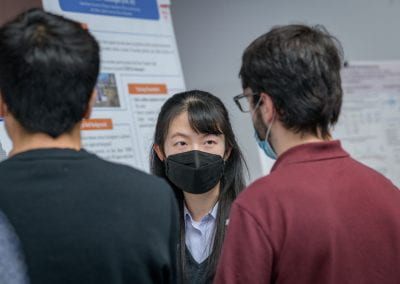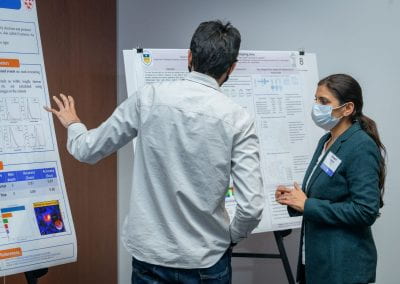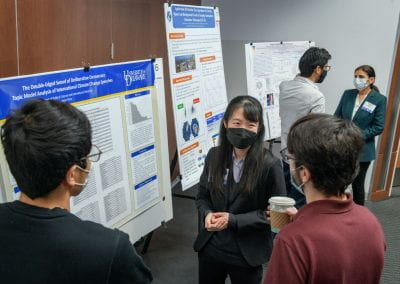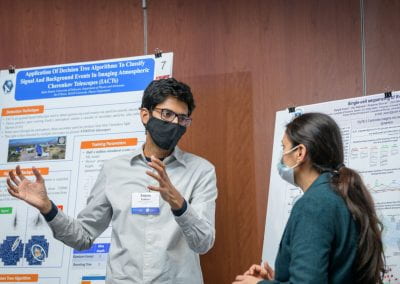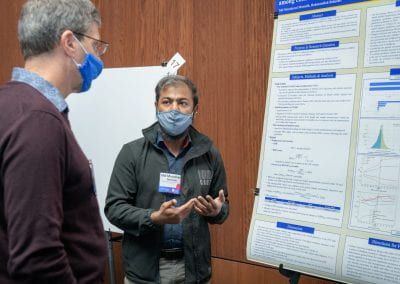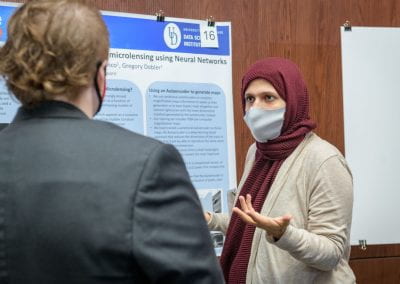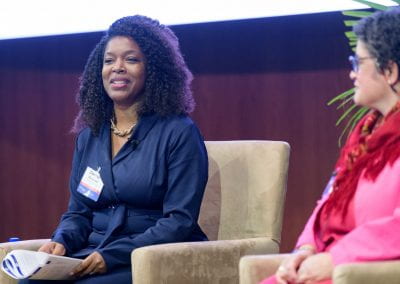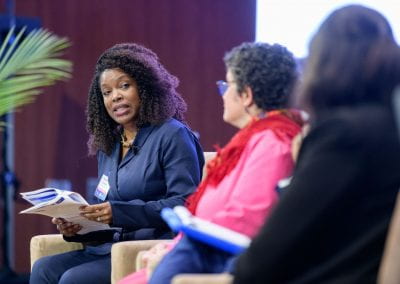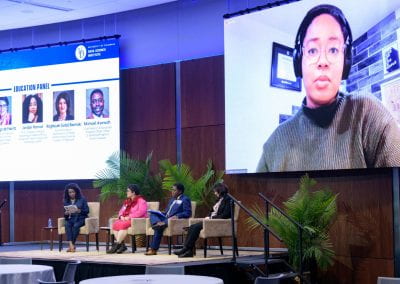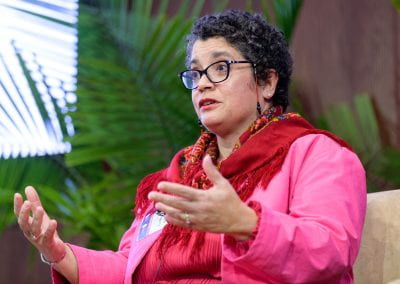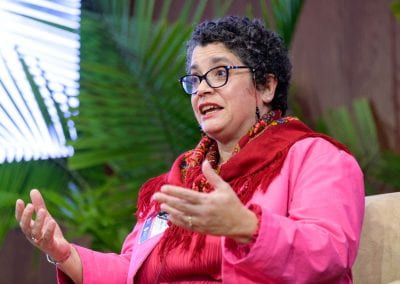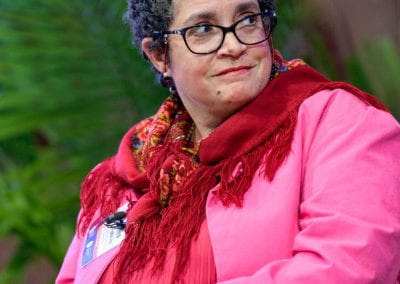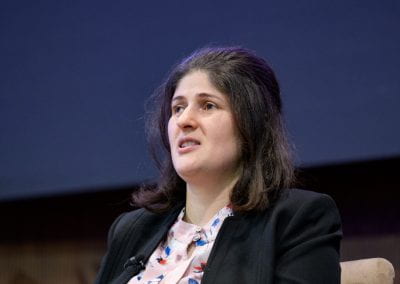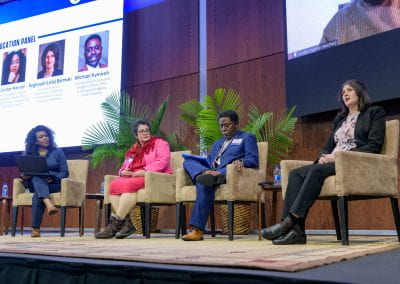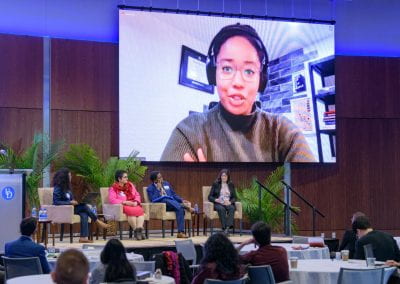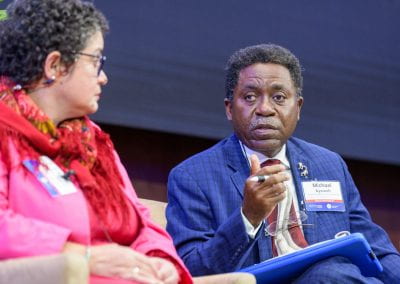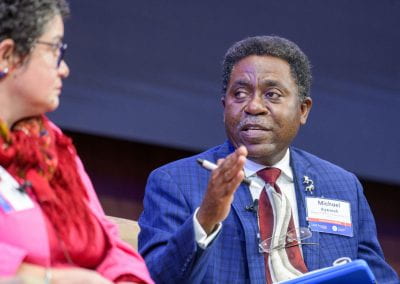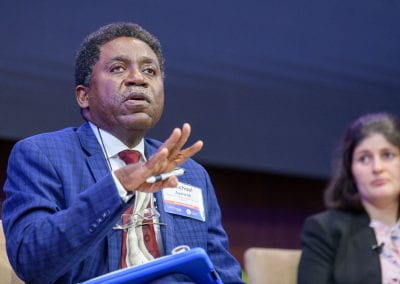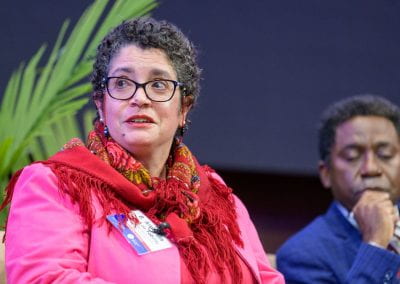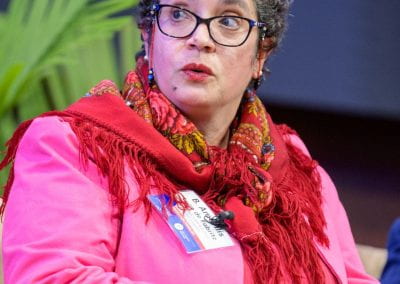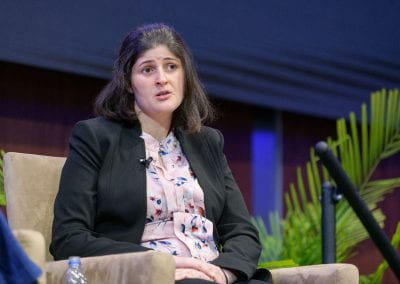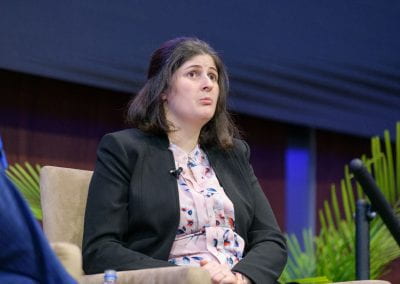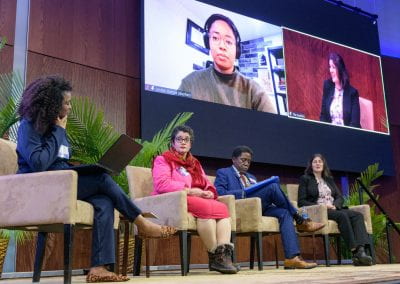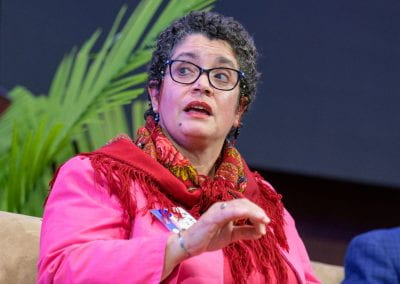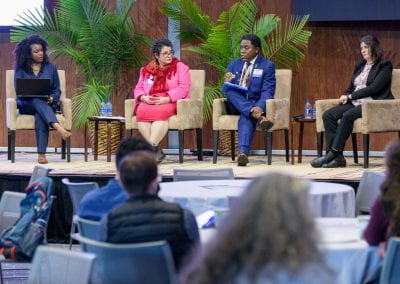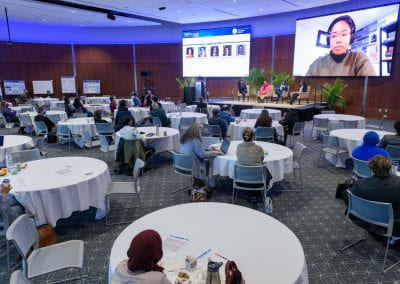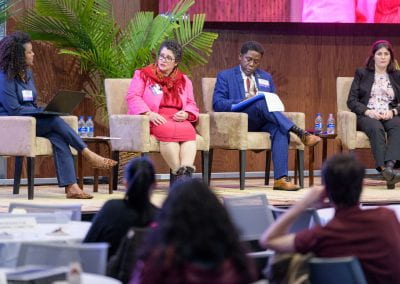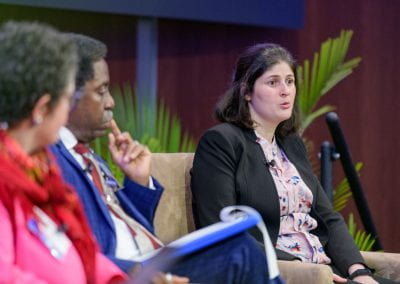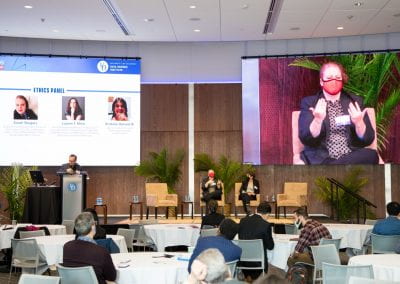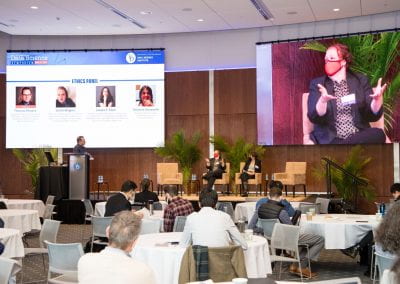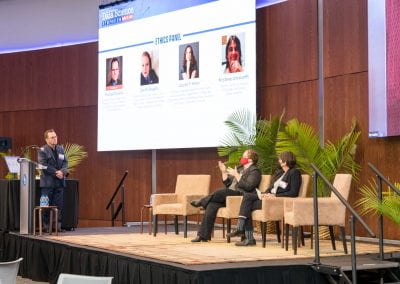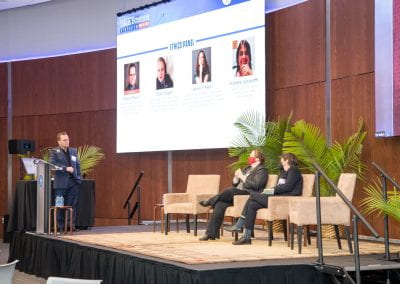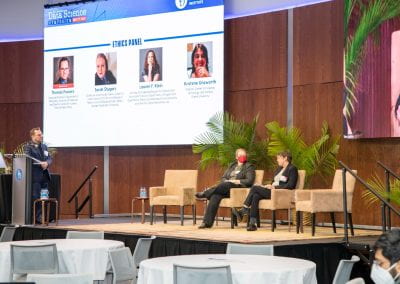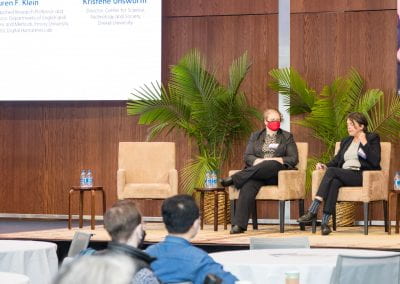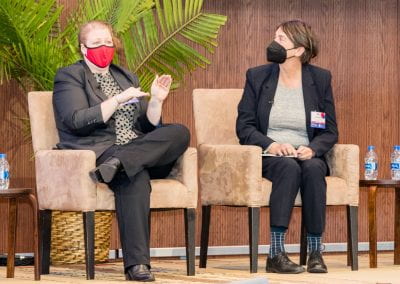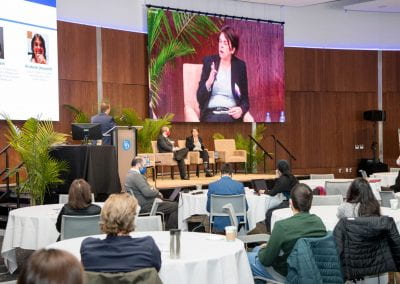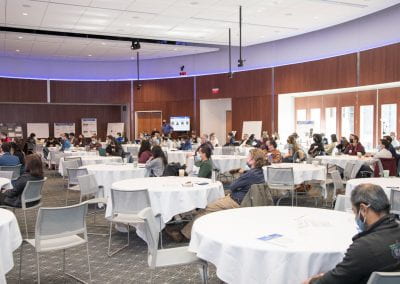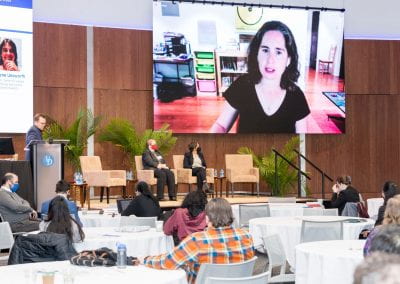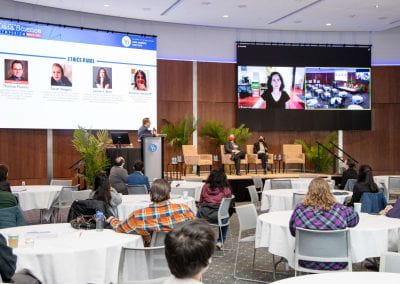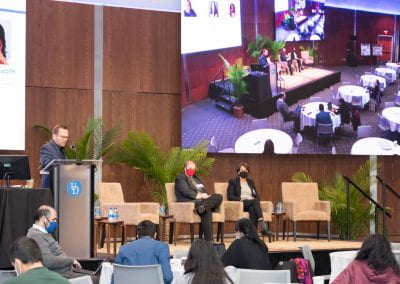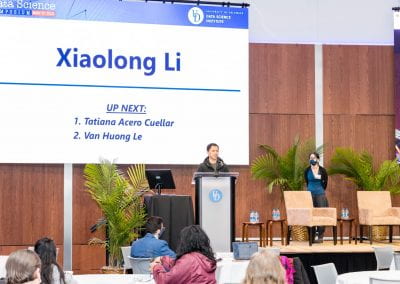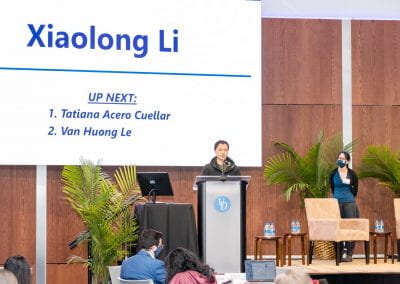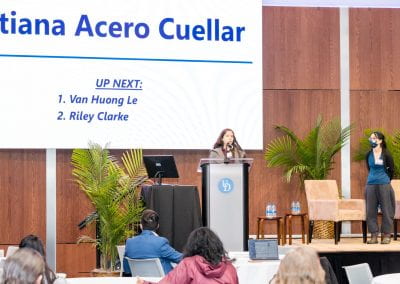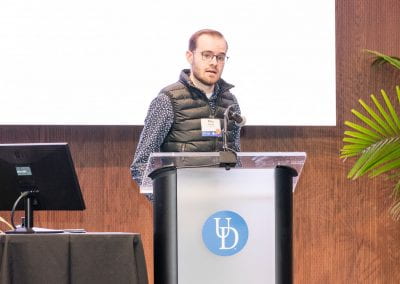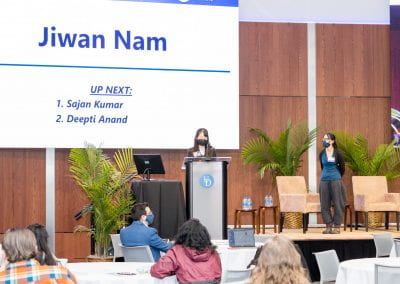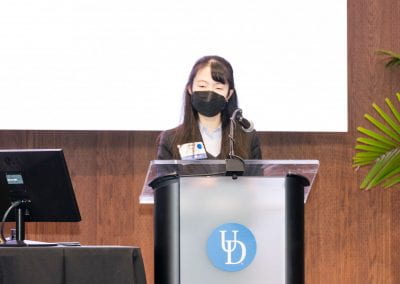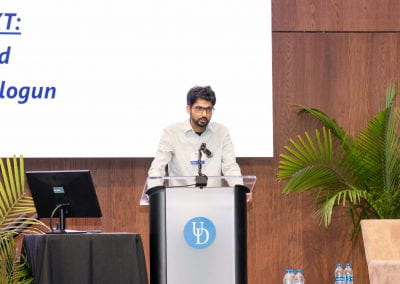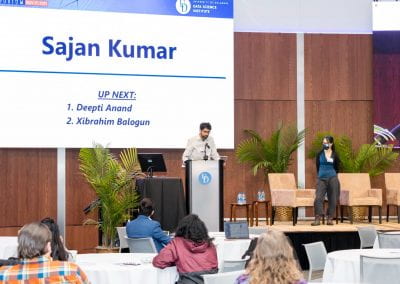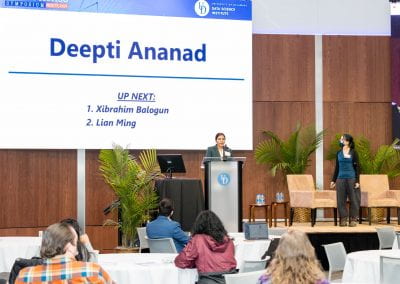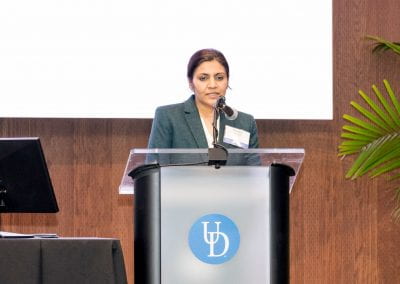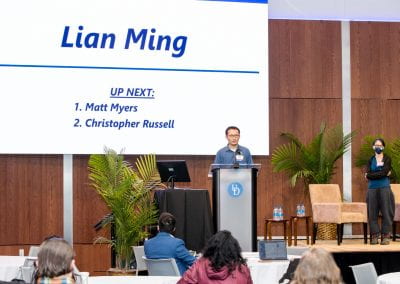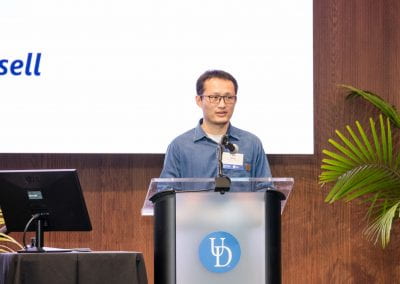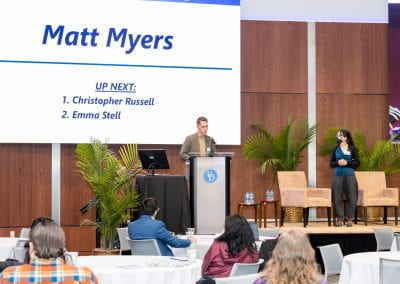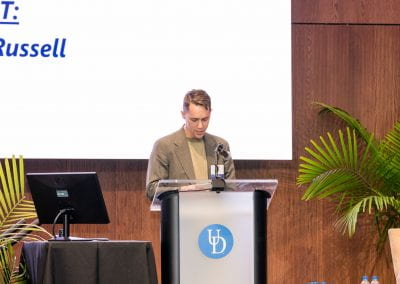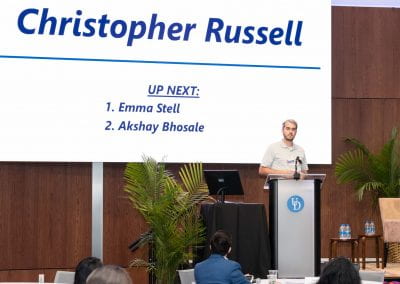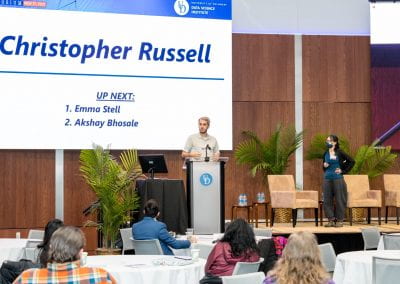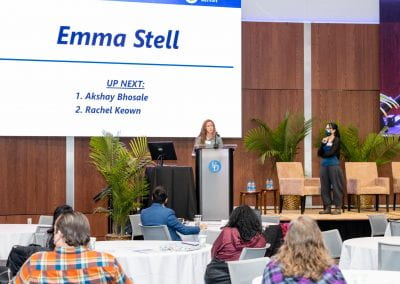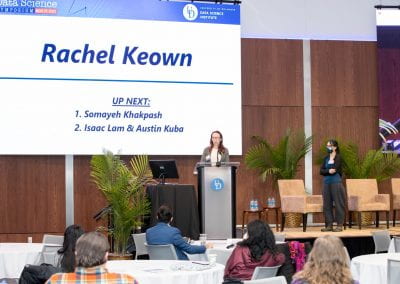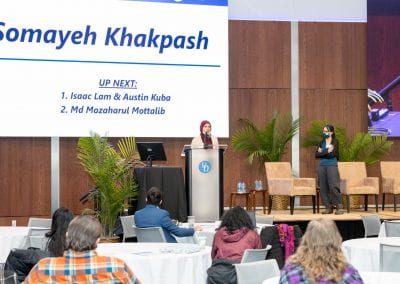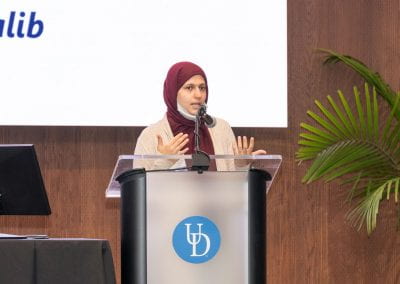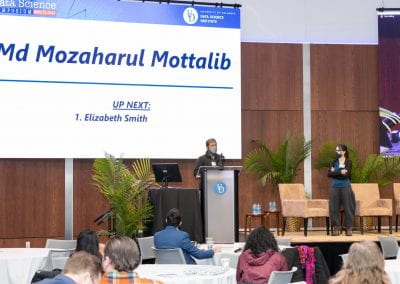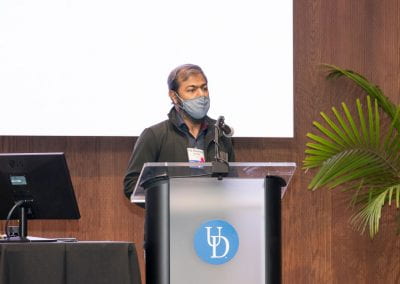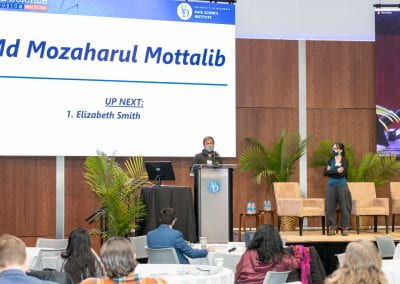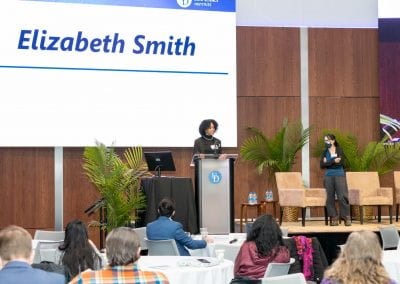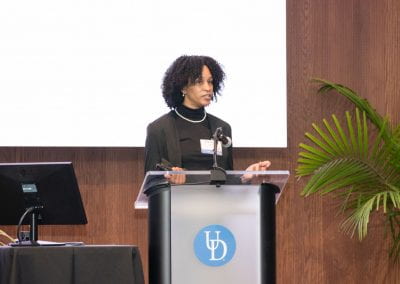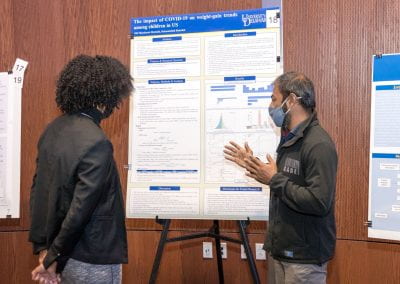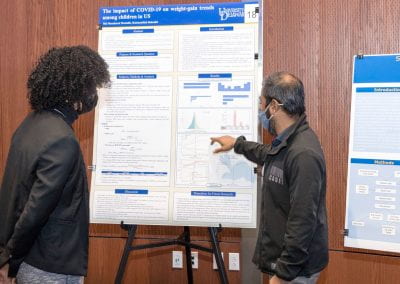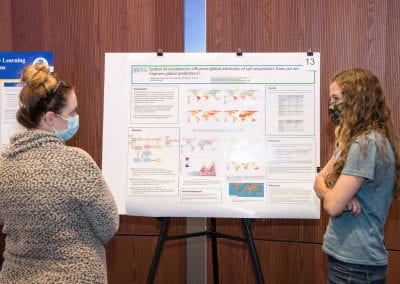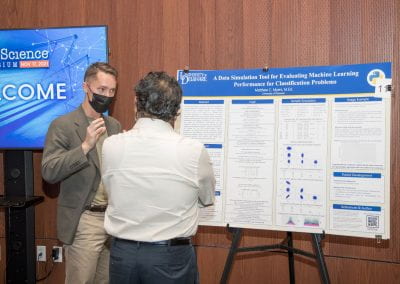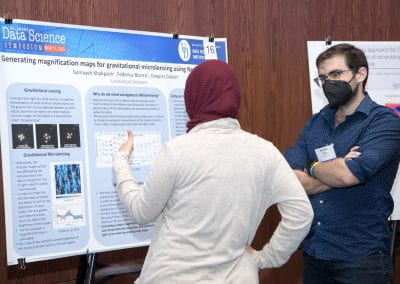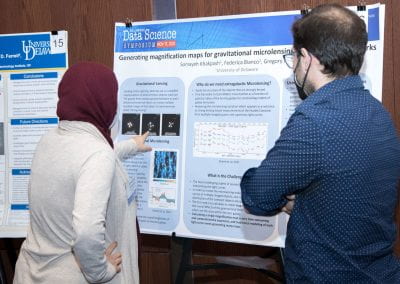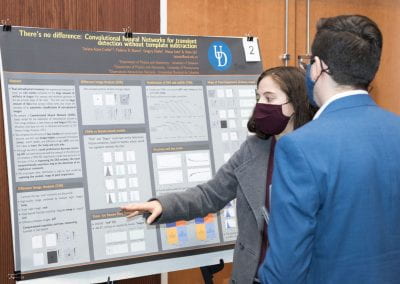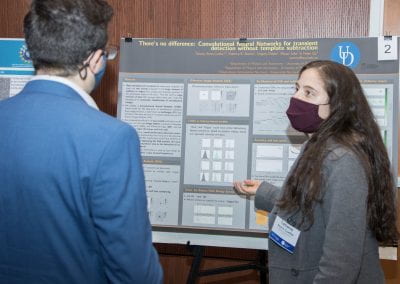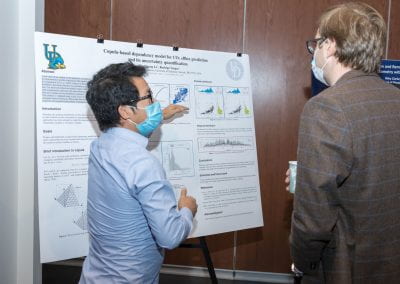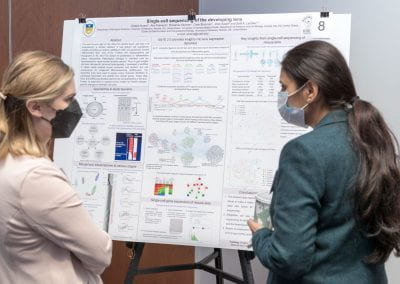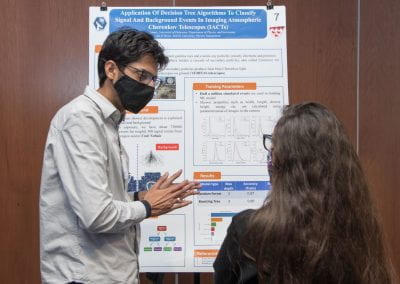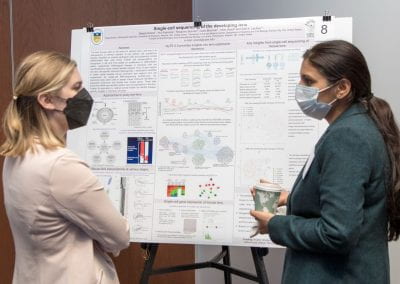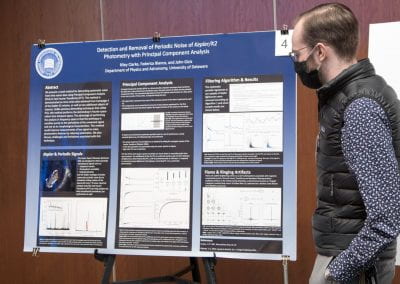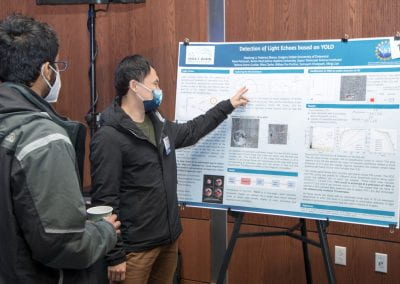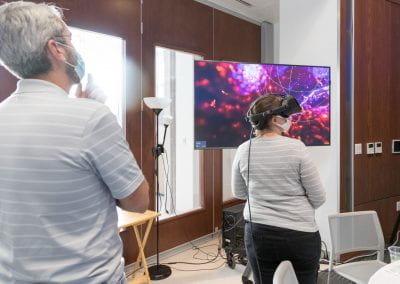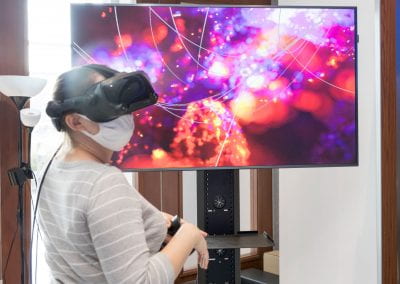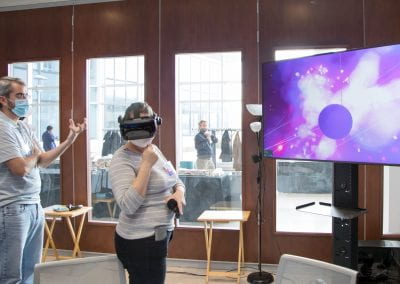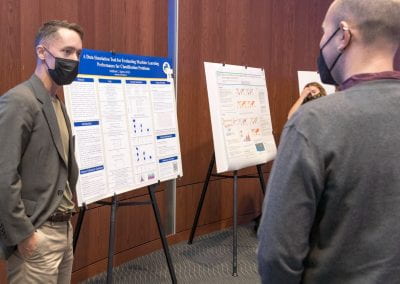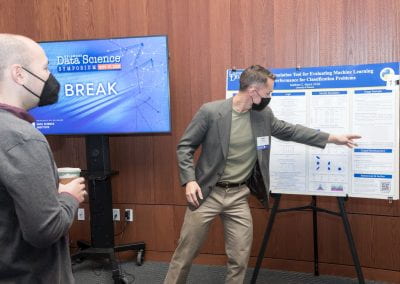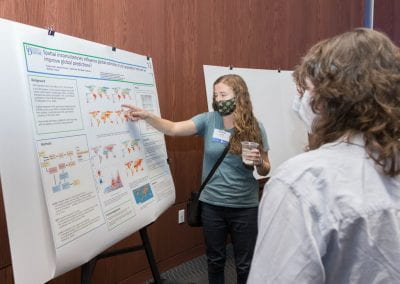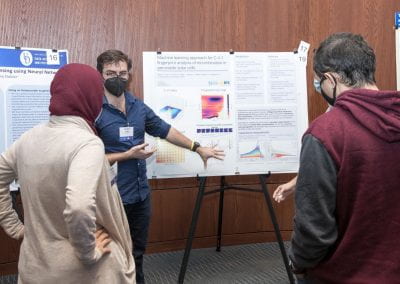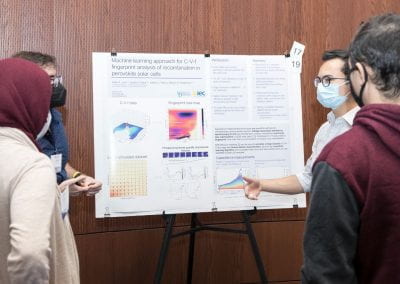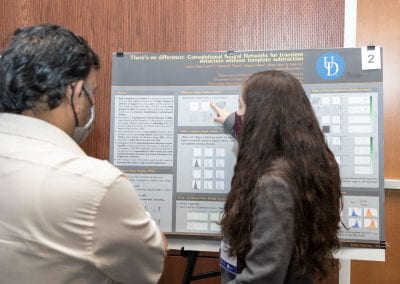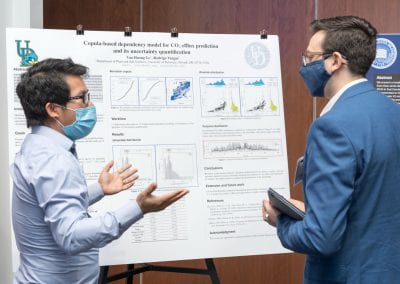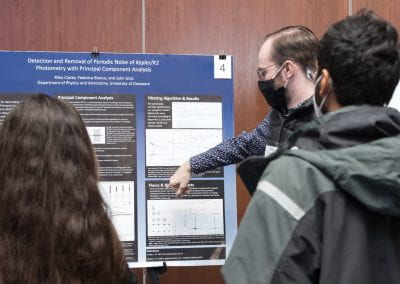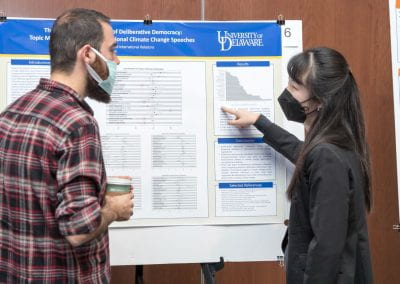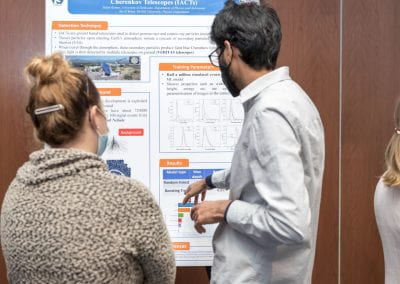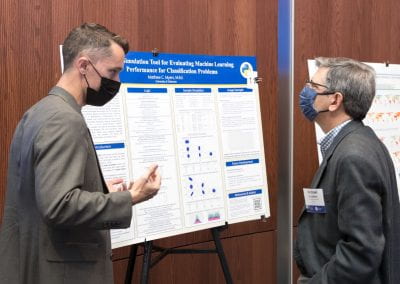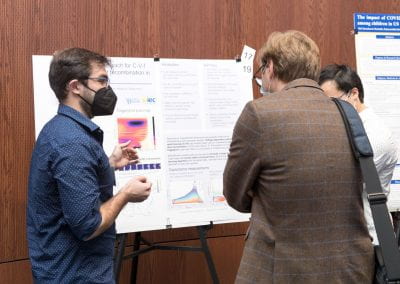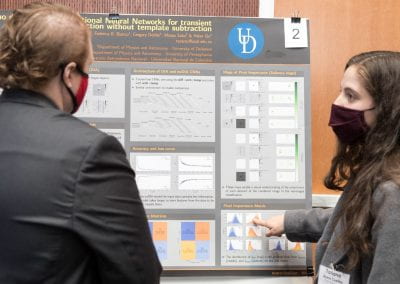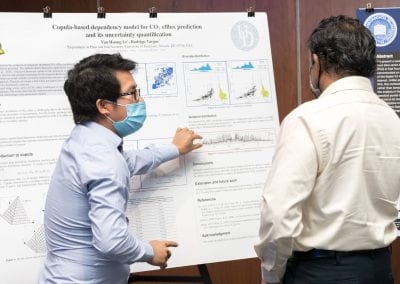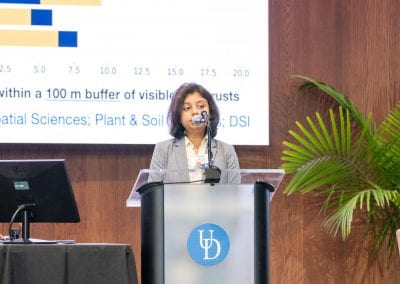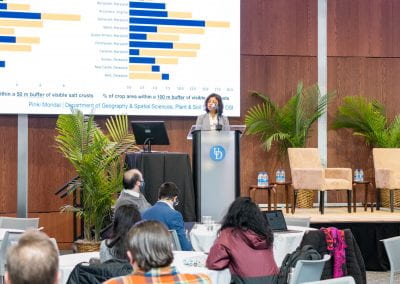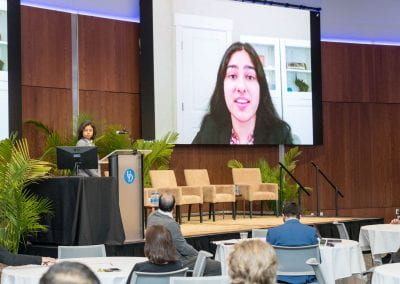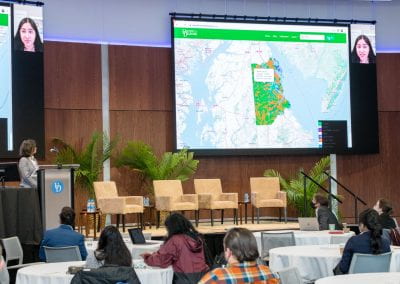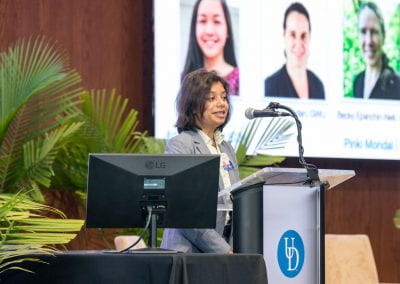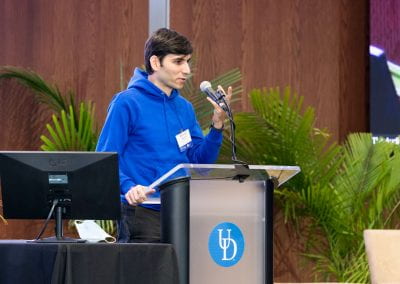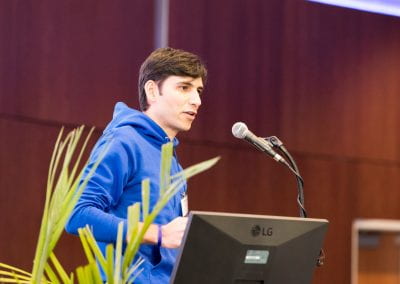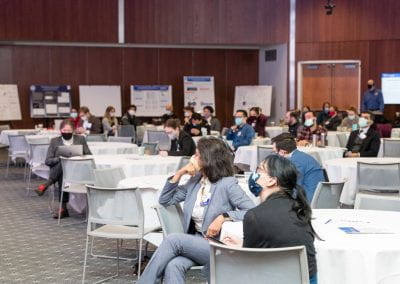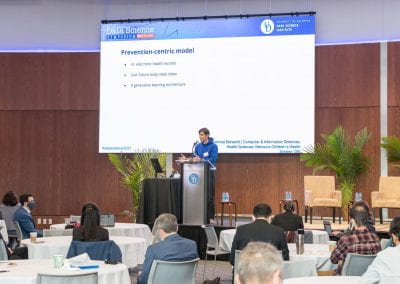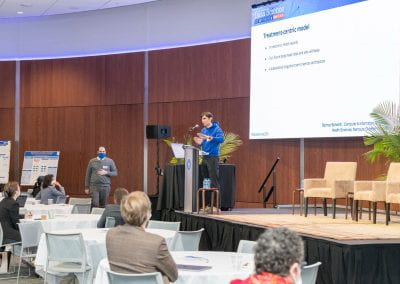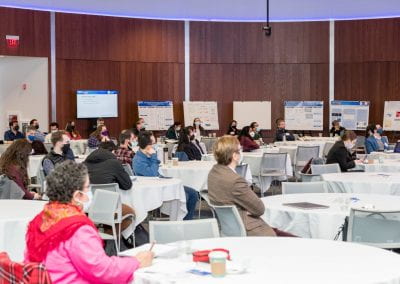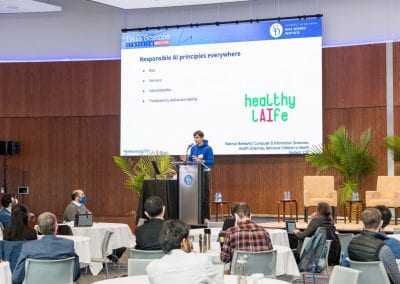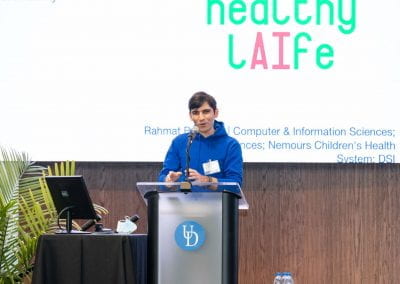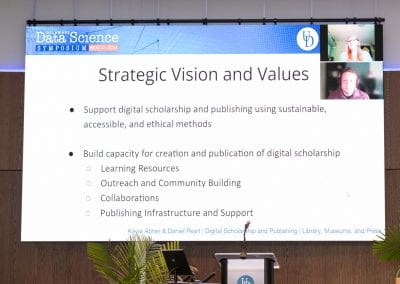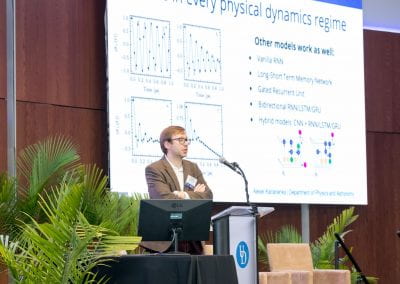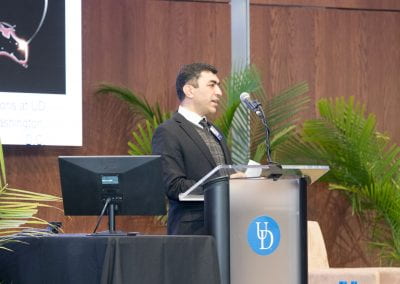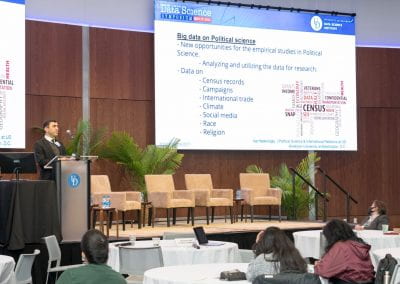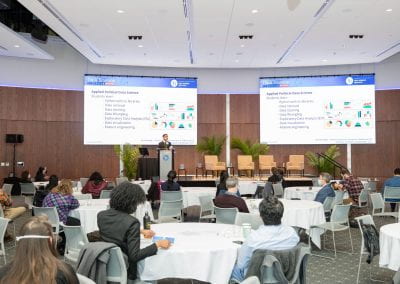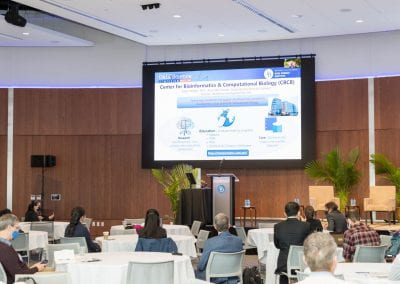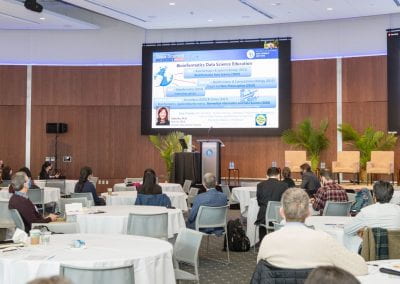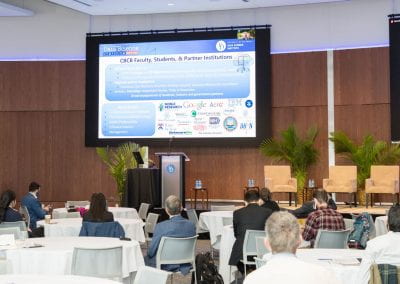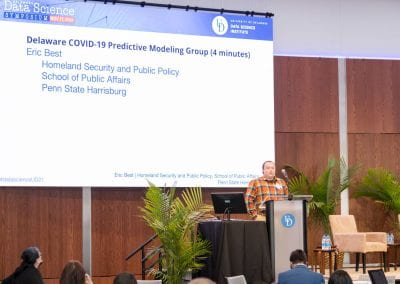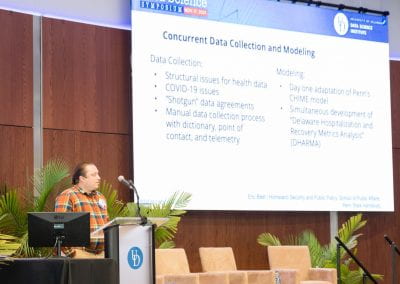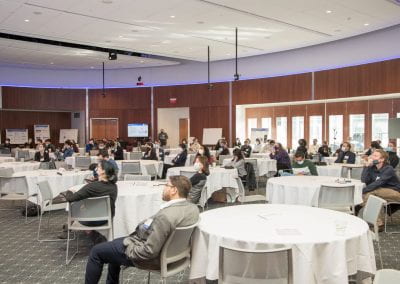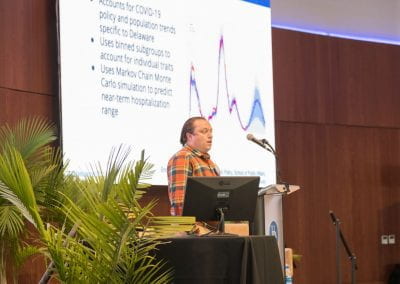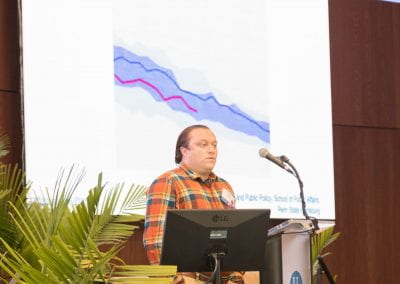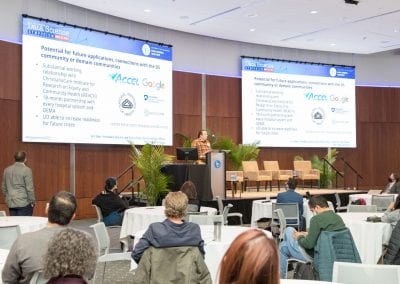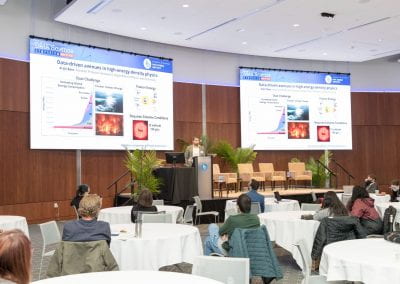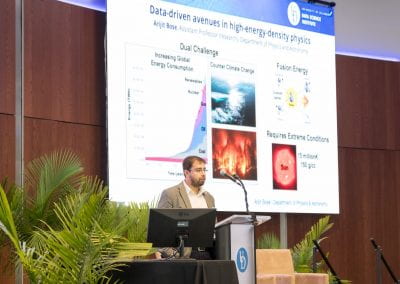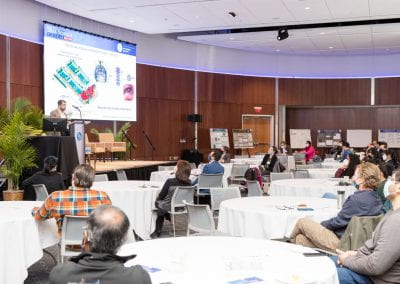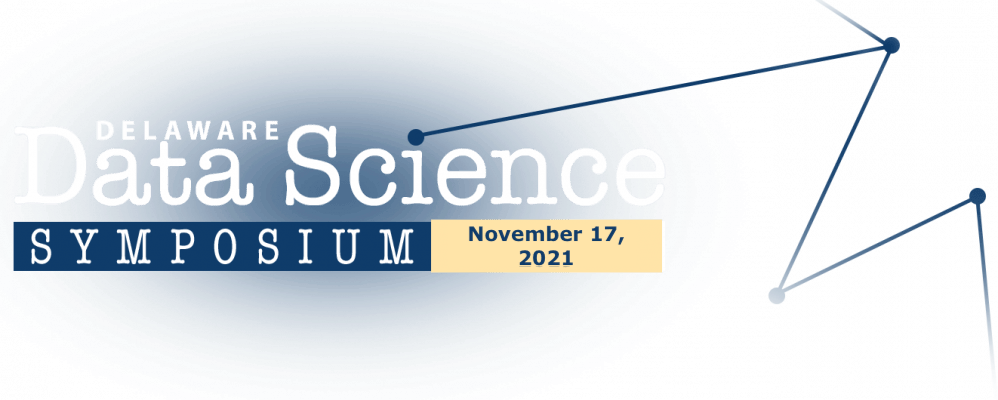
Thank you for joining us for the 2021 Data Science Symposium, an event organized by the UD Data Science Institute to bring together UD researchers and local partners interested in Data Science applications, theory, and pedagogy across domains.
The day-long symposium was held on November 17th, 2021 in a Hybrid in‑person/virtual format at UD’s Star Campus in The Tower at STAR Audion. Recordings of the event are available below.
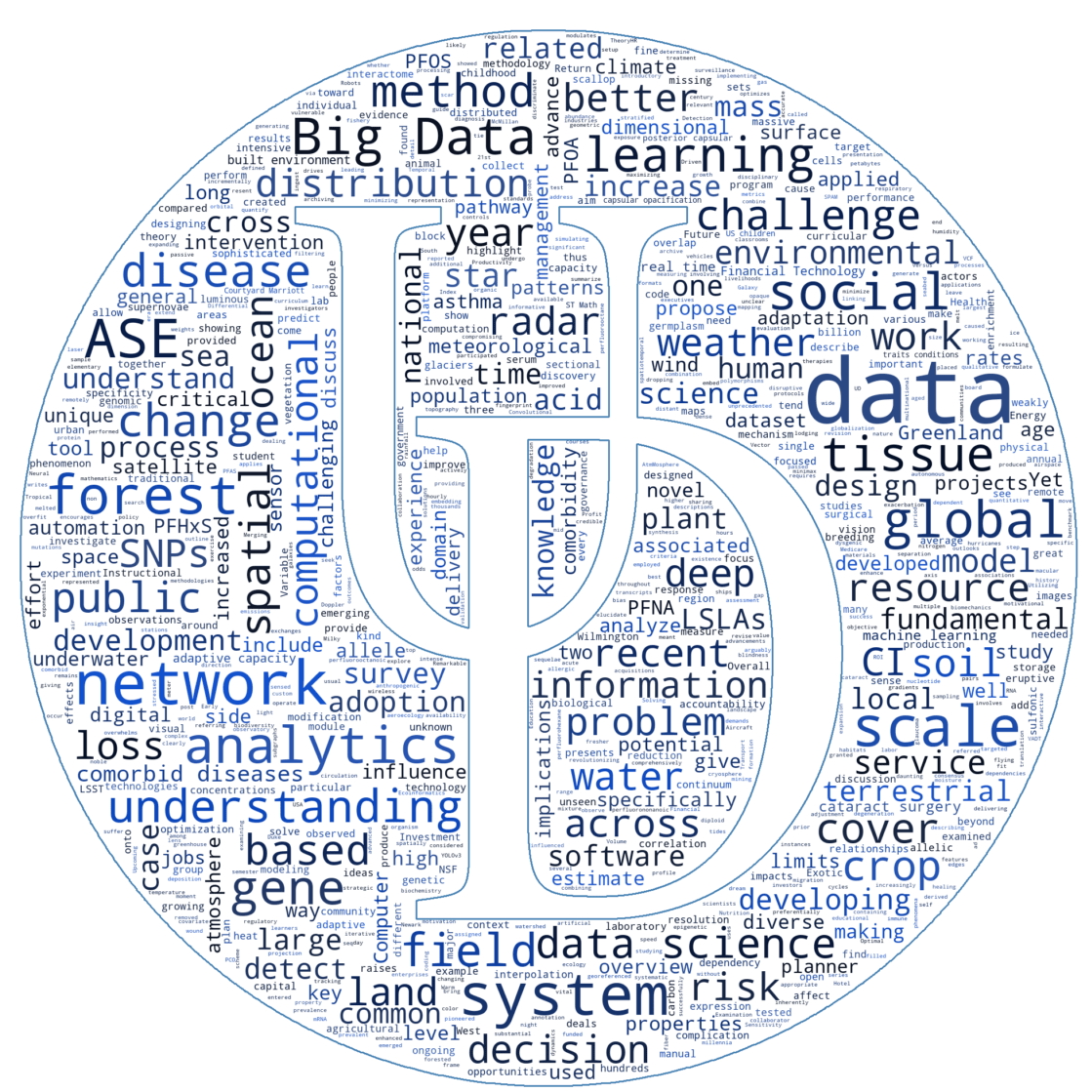
Code of Conduct
Shared Values
- KindnessActing with and encouraging kindness strengthens individuals, relationships, and communities.
- TrustAn inclusive, collaborative environment is best achieved when there is mutual trust, based upon honest behavior, throughout the community.
- RespectWe grow by considering a variety of viewpoints and approaches. We should honor alternate viewpoints as opportunities for discussion and learning, and therefore treat others with respect, even if we disagree.
- DiversityIn a diverse community, differences between people are recognized and acknowledged as assets. Our community is stronger, more creative, and more innovative because it is fueled by a broad range of ideas and perspectives.
- InclusivenessWe promote equality of opportunity and fair treatment for all colleagues, regardless of gender, race, ethnic and national origin (including Indigenous Peoples), religion, age, marital status, sexual orientation, gender identity and expression, disability, veteran status, and all other identities.
Principles of Engagement
- We explicitly ban racism, sexism, homophobia, transphobia, and other kinds of bias— whether these behaviors are overt or subtle. Subtle-“isms” may include more nuanced but also unacceptable behavior, such as ageism, ableism, etc. All members of the group should be treated with respect regardless of personal attributes, including but not limited to: race, ethnicity, gender or gender identity, physical appearance, physical abilities, religious beliefs, political affiliation or opinions, sexual preference, caregiver status, age, nationality, and language.
- Harassment, verbal or physical, is not tolerated. Keep in mind that what is acceptable to one person may not be acceptable to another. Targeting a member of our community or isolating them deliberately is considered harassment and any such behaviors are never allowed or excused.
- Bullying, including physical bullying, exclusion, marginalization, disparagement, or intimidation, is not tolerated.
- All participants are empowered to request that undesirable behavior is dismissed.
- All participants are expected to immediately stop any behavior inconsistent with the Code of Conduct regardless of original intent.
What to do if...
- If you realized or are made to realize that you violate these principles, apologize, reflect, and move forward.
- If you experience these behaviorsduring the course of the meeting, you should feel free to bring it up directly with the person, or if it’s more comfortable, point out the behavior to the meeting organizers or one of the designated contacts mentioned in the reporting section
- If you see something concerning: Should a participant witness events of bullying, harassment or aggression, please, when possible, first contact the person who suffered the abuse to show support, ask how they are doing, and remind them that they can talk to the designated contact person. The decision to approach the contact person should, however, ultimately be left to the person who suffered the abuse.
Point of contact
Virtual presenters or attendees acting inappropriately or using inappropriate language may be muted (video, voice, chat) or removed from the meeting by the moderator. In-person attendees acting inappropriately or using inappropriate language may be asked to leave the Symposium.
In-person participants
- Respect participants’ personal space, do not expect that participants would be comfortable with common instances of physical contact, such as hand-shaking.
- Keep your mask onwhen not eating or drinking and if you need to remove it for a few seconds (e.g. to drink) ask the people near you if they are comfortable with this. Do not spend too much time in unnecessarily close contact with other participants.
- Do not interrupt speakersbut wait for designated question time.
Online participants
- Remember to mute your microphone when not speaking.
- Consider turning on your camera if comfortable: While we do not require that participants keep their camera on, please consider turning it on if you are comfortable with it when you ask or answer questions or in breakout rooms to foster interaction and help better understand the conversation in their nuances.
- Use the zoom emojis to show appreciation for our speakers, e.g. the clap emoji.
- Raise your hand to be called to ask questions or put your questions in the dedicated session Slack channels do not use the zoom chat. This is because the moderators will be more effective if they only have to monitor a communication platform and the slack channels will be saved, ensuring a record of the conversation we had.
- If you cannot or prefer not to unmute, ask questions on the dedicated session Slack channels do not use the zoom chat.
Further Guidelines for Moderators, Presenters, and Participants
- Communication: Dedicated Slack channels will help people to follow essential parts of the discussions; the social media hashtag this meeting’s hashtag is #UDDSI2021. Participants are advised to be mindful and respectful of cultural differences between the participants in online and in-person discourse.
- All sessions will be recorded. As a presenter or participant of the meeting, your image and/or your voice may appear in recordings that may be publicly accessible. If you prefer your image not to appear, presenters and participants are welcome to keep the video muted. As a participant, to avoid your voice being recorded you may consider asking questions on Slack.
- Guidelines for session moderatorsare given to ensure and promote an equitable environment: be conscious of their biases and avoid preferentially selecting some people and/or paying attention to only some parts of the room. Discreetly invite contributions from quieter members of the group without forcing anyone into the spotlight (e.g. “what do colleagues from primarily undergraduate institutions think”). In Q&A accept questions from junior members of the audience and members of underrepresented communities first, as there is evidence that this makes it more likely that junior people and people from underrepresented groups will come forward with questions.
- Guidelines are given to presenters to design inclusive visual content https://github.com/fedhere/FASTlab/blob/master/AccessibleVisualContent.mdand see also https://www.nature.com/articles/d41586-021-02696-z. We encourage presenters to use color palettes and fonts that are suitable for color-blind and dyslexic participants. In addition, do not belittle or elevate some questions over others (by saying “that is a good question”, implicitly implying others may not have been). It is important that everyone is empowered to and comfortable in saying that they do not understand.
Keynote Speakers
Education Panel
Ethics Panel
Industry Panel

Schedule
| 8:15 | Registration |
| 9:00 | Welcome Remarks |
| 9:15 | Keynote: Dr. Shneiderman |
| 10:05 | Break |
| 10:10 | Ethics Panel |
| 10:55 | UD Students and Postdocs Lightning Talks |
| 11:10 | Coffee Break & Poster Session 1 |
| 11:35 | UD Faculty and Researchers talks I |
| 12:20 | Lunch |
| 1:10 | Industry Panel |
| 1:55 | Keynote: Dr. Nelson |
| 2:45 | Coffee Break & Poster Session 2 |
| 3:05 | Education Panel |
| 3:50 | Break |
| 3:55 | UD Faculty and Researchers talks II |
| 4:40 | Closing Remarks and Awards |
| 5:00 | End Symposium |
Planning Committee
- Ben Bagozzi (Co-Chair)
- Federica Bianco (Co-Chair)
- Parinaz Barakhshan
- Michael Blaustein
- Rich Braun
- Chuming Chen
- Susan Conaty-Buck
- Adam Davey
- Kyle Davis
- Greg Dobler
- Rudi Eigenmann
- John Gizis
- Lauren Hess
- Medina Jackson-Browne
- Somayeh Khakpash
- Matthew Mauriello
- Juan Perilla
- Farid Qamar
- Amy Shober
- Claude Tameze
- Cathy Wu
- Andrea Trungold: Coordinator
Morning Session
- Welcome and Shneiderman Keynote [Video]
- Ethics Panel and Student/PostDoc Lightning Talks [Video]
- Poster sessions (in person and virtual)
- UD Faculty and Researchers talks 1 [Video]
Afternoon Session
Our Mission
The Institute aims to accelerate research in data science, serving as a nucleating effort to catalyze interdisciplinary research collaborations across fields impacting our society.



